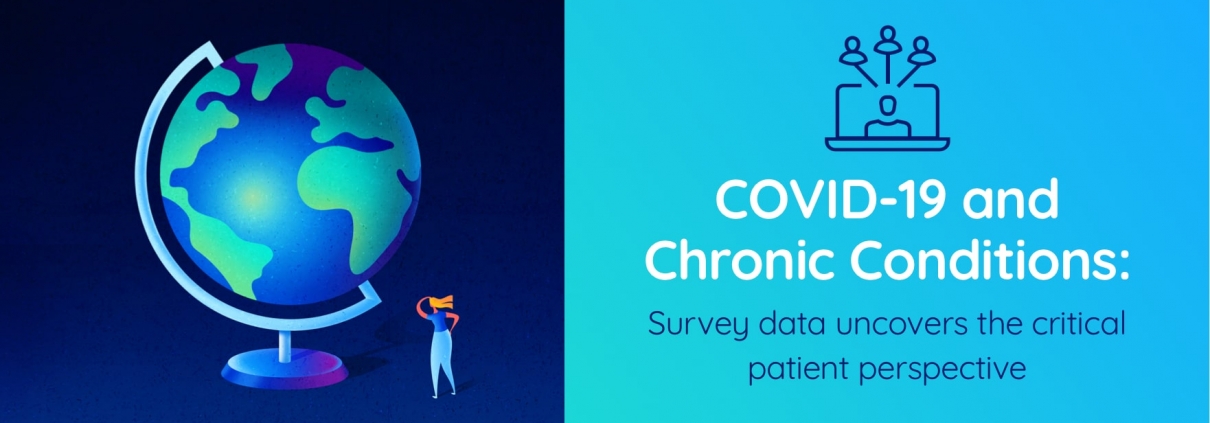While experiences have varied, many of these individuals who were infected with COVID-19 experienced a worsening of their symptoms. One AxialSpondyloarthritis.net patient leader who tested positive for COVID-19 said her spondyloarthritis “worsened three-fold.”
Another patient leader explained how her psoriatic arthritis “went into hyperdrive” when she became infected, describing the pain in her back, hips, fingers and neck as “excruciating.” She said, “I spent most of my COVID-19 days in bed, which just intensified my arthritis due to a lack of exercise and movement.”
Dealing with Vaccine Dynamics
In addition to being at risk for serious COVID-19 illnesses, immunocompromised individuals have dealt with weaker immune system responses to the vaccine. This has led to increased stress and confusion and the necessity for some to receive additional shots.
In fact, many people with compromised immune systems were advised they had to receive three shots – as opposed to the two-dose regimen most non-immunocompromised people received – to be considered fully vaccinated.
One AnkylosingSpondylitis.net patient leader said he felt “the term ‘fully vaccinated’ doesn’t apply to us on immunosuppressants as we seem to be heading towards a never-ending cycle of vaccine top-ups.” A MultipleSclerosis.net patient leader explained the “peace of mind” she had initially felt in mid-2021 from being vaccinated was “short-lived” after finding out the MS medications she receives make her immune system less likely to mount a healthy antibody response.
COVID-19 has also led to particularly impactful “breakthrough” infection cases for people who are immunocompromised. According to the American Medical Association, a U.S. study showed 40-44% of hospitalized breakthrough cases of COVID-19 were people who were immunocompromised.
Vaccine logistics and scheduling have been a particular concern for people with compromised immune systems. Some needed to delay important treatments just to receive the vaccine. One individual living with lupus described needing to delay an infusion and discontinue her daily immunosuppressives for a month just to get the vaccine. “This is quite a challenge since my disease is not under control, and without my daily medication and infusion my disease will get progressively worse,” she said. “But this is what will happen so I can get my vaccine.”
Struggling with Lifted Pandemic Restrictions, Others’ Perceptions
Despite the state of the pandemic, as well as general knowledge of COVID-19, being markedly different two years later, some patient leaders remain worried about various safety restrictions being lifted and the world returning to pre-pandemic approaches to life.
One AnkylosingSpondylitis.net patient leader said she gets “anxious just thinking about” the lifting of COVID restrictions. Despite having received four doses of the COVID vaccine, “I still don’t feel 100% safe against COVID, and I sure don’t want to get it.” Another said it was “hard to watch everyone else going back to life as ‘normal’ while the stakes of simply going over to a friend’s house are much higher for me.”
A RheumatoidArthritis.net patient leader who takes a biologic medication for her rheumatoid arthritis and Crohn’s disease, causing her to be immunosuppressed, said she put off traveling as long as she could due to COVID-19 fears.
A lack of understanding on the part of others about people’s conditions has led relationships to be strained over the past two years. One AxialSpondyloarthritis.net patient leader discussed family members being angry with her for missing some events due to her condition.
Some people have expressed frustration over feeling undermined, marginalized or forgotten about throughout the pandemic despite consistently being considered among the most vulnerable. One patient leader lamented constantly hearing others say that everything would be OK – and that restrictions should be lifted – because the virus just affects the elderly and immunocompromised, “as if my life doesn’t matter the way their social life does.”
COVID Silver Linings for the Immunocompromised
Despite many of the negative effects of the COVID-19 pandemic on people who are immunocompromised, there have been silver linings for some. Specifically, many non-immunocompromised people – forced to isolate and avoid others, socially distance and be mindful of their health – were experiencing what day-to-day life can be like with a weakened immune system.
One Heart-Failure.net patient leader, who described life since her heart transplant as a “social distancing experiment” due to “a lifetime full of immunosuppressant medications, some social restrictions, and constant worry about infections all around you,” echoed this sentiment. “In a way, I feel like everyone now understands what I went through when I first received my heart transplant,” she said.
A Lupus.net patient leader was heartened that people were able to stay home if they felt sick, rest and take care of themselves. Specifically, she’s thrilled about the increase in conversations and awareness of mental health. “COVID just brought out another level of awareness, and people began to realize how much our surroundings impact our health physically and mentally,” she said.
Better understanding the health journeys of people who are immunocompromised – specifically, how the COVID-19 pandemic has impacted and will continue to impact their lives – will provide healthcare partners what they need to provide needed resources.
Social health creates space for patients to discuss their unique challenges, allowing pharma and healthcare to better address their needs. Partner with Health Union to better understand these insights and to expertly navigate the expansive world of social health – from scalable online health communities and social extensions to comprehensive, quantitative, condition-specific data.




